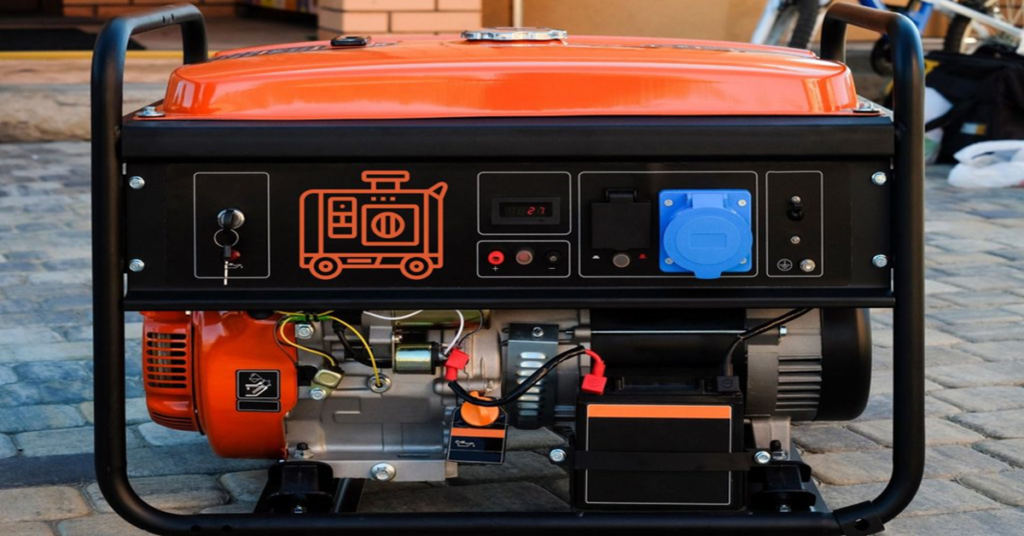Power outages are a common problem in many places. Especially for businesses, it has a huge negative effect, causing damage to equipment, lost income, and even a decline in customer trust. That is where a commercial standby generator comes in.
Standby generators are designed to provide reliable power backup during power cuts and are essential for maintaining smooth business operations. Therefore, in this blog, we will discuss standby generators, how they work, and why businesses need them.
What is a Standby Generator?
A standby generator is a backup power system that functions automatically when the primary power supply fails. Unlike portable generators, which require manual setup and connection, standby generators are permanently installed outside your building and wired directly to your electrical system. They constantly monitor the power supply and, in the event of an outage, start up automatically within seconds, providing uninterrupted electricity.
The two main types of standby generators are air-cooled and liquid-cooled. Air-cooled generators are suitable for smaller businesses or homes, while liquid-cooled systems are larger, more powerful, and ideal for commercial settings.
How Do Standby Generators Work?
Standby generators depend on an automatic transfer switch (ATS) that monitors your power supply. Here’s how they work in a typical scenario:
- Power Monitoring: The ATS continuously checks for any disruption in the power supply from the utility grid.
- Automatic Activation: If the ATS detects a power failure, it sends a signal to the standby generator to start up.
- Power Generation: The generator then powers up and supplies electricity to the building. This process typically finishes within a few seconds, which helps minimize downtime.
- Seamless Transition: Once the generator is running, the ATS switches the building’s electrical system to draw power from the generator, keeping all essential equipment running smoothly.
- Return to Normal: The ATS detects the return of normal electricity flow and switches the building’s power back to the grid once the utility restores power. The generator then powers down, ready for the next potential outage.
Why Do Businesses Need Standby Generators?
1. Minimize Downtime
Even a minute of power interruption might affect productivity and revenue. A reliable power source is essential for any business, like a retail store, hospital, or manufacturing company. Standby generators ensure that business operations continue uninterrupted, protecting against financial losses due to downtime.
2. Protect Sensitive Equipment
Many businesses fully depend on devices like computers, servers, or medical equipment, which may need a steady power source. A sudden power loss can damage or destroy this equipment, leading to costly repairs and delays. Standby generators provide a safeguard, preventing equipment from shutting down unexpectedly.
3. Comply with Regulations
Certain industries, like healthcare and food services, are subject to strict regulations regarding power reliability. Hospitals and clinics, for example, must have backup power to continue patient care during a blackout. Food manufacturers and retailers need a steady power supply to avoid spoilage and comply with health and safety regulations. A commercial generator helps businesses meet these requirements.
4. Enhance Security
Power outages can lead to security risks, mainly in businesses with surveillance or alarm systems. A standby generator ensures that security cameras, alarm systems, and access control measures continue functioning, protecting assets and keeping premises secure even during a power failure.
5. Avoid Financial Loss
Even a short power outage can cause major disruptions in operations in industries like e-commerce, manufacturing, and financial services. For example, online retailers might lose sales, and manufacturers could experience expensive production delays. By investing in a backup generator, businesses can prevent these setbacks and keep things running smoothly.
6. Boost Customer Confidence
When a business can operate even during a power outage with the help of generators, it gains a reputation from customers for reliability. Customers, clients, and partners see the business as trustworthy and resilient. Standby generators ensure businesses operate 24/7.
Conclusion
Downtime in businesses can have severe consequences. That is why standby generators are important. During emergencies, they provide continuous power solutions that ensure operations continue as usual. Make sure you get a commercial generator and have it installed by a pro for your business.







